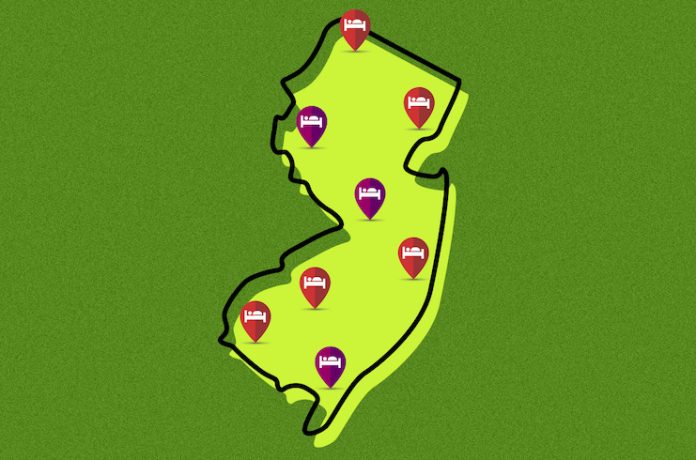One of our industry’s greatest success stories is the hotel franchise model. More than half of U.S. hotels are franchised today. This year alone, these properties will support 2.5 million jobs and generate nearly $25 billion in state and local tax revenue—strengthening our economy and paving the way for entrepreneurs and employees to achieve the American dream. Unfortunately, the hotel franchise model—the bedrock of today’s lodging industry—is now under threat. For the past several months, AHLA has been fighting legislation in New Jersey that would fundamentally alter the hotel franchise model as we know it, devaluing the investment of small-business franchisees across the state.
AHLA does not intervene in business disputes between our members. However, we have been forced to engage in the New Jersey legislation because of the devastating impact it would have on the entire industry—particularly hotel owners. Although this bill purports to fix every concern that some hotel owners have about their individual franchise relationships, if signed into law, it would have severe unintended consequences for the entire industry. It would single out the lodging industry, set a dangerous precedent of inviting the government into business contracts, and cause lasting harm to hotel owners, management companies, brands, and consumers.
New Jersey Franchise Bill: Major Problems, Negative Consequences
The bill (A1958/S3165) passed the New Jersey General Assembly and is pending in the state Senate. Its impact, should it become law, would be far-reaching and disastrous: compromising owners’ investments; forcing hotel owners and brands into expensive litigation, bringing hotel development to a standstill; driving businesses out of state; and jeopardizing the $13.4 billion that New Jersey hotel guests spend each year. AHLA is actively engaging New Jersey legislators to stop this bill from becoming law and highlighting four significant problems with the legislation:
Problem 1: Weakening brand standards
Brand standards are a hallmark of hotel franchising, signaling consistency and reliability to guests, promoting loyalty, and providing a proven operating model to set small businesses up for success. Should the New Jersey franchise legislation pass, any brand improvement—such as Wi-Fi, mobile check-in, or breakfast offerings—would be negotiated property by property. The bill would also permit the use of “comparable” products in place of required items, leading to inconsistent quality across a portfolio and compromising guests’ trust in a brand’s reliability. What’s more, the bill plans to establish a new entity, the Franchise Advisory Committee, to control new fees, but does not specify how members will be elected nor outline their fiduciary obligations to owners or to the system itself.
Problem 2: Restricting loyalty points
The New Jersey franchise legislation would also change how loyalty points are reimbursed and establish a formula that would make it difficult for guests to use and accrue loyalty points while visiting Garden State hotels. If this bill were to pass, brands would either need to develop a New Jersey-specific hotel loyalty point system or simply remove franchised hotels from the loyalty points system altogether. Given the complexities of these systems, it is far more likely that franchised hotels would no longer be able to participate in the loyalty points system. Additionally, it would bar franchisors from charging franchisees a fee for failing to meet minimum loyalty program enrollment numbers. This would allow hotels in a branded system to get a free ride from properties that are diligently enrolling guests and driving business across the entire portfolio.
Problem 3: Triggering costly litigation
The bill’s vague legal terms and lack of guidance will no doubt produce an extensive uptick in expensive legal disputes among franchisees and hotel companies. The bill also conflicts with intellectual property protections and takes a one-size-fits-all approach that ignores the nuances of the lodging industry, overlooking the various segments, chain scales, property types, and contract terms.
Problem 4: Undermining crucial vendor partnerships
The New Jersey franchise bill would restrict a brand’s ability to negotiate beneficial agreements with partners and vendors, which are meant to provide cost savings to hotel owners.
On behalf of New Jersey’s 1,180 hotels and more than 45,500 hotel employees, AHLA will continue fighting to stop this legislation to protect the entire hotel industry, particularly hotel owners who will bear the brunt of the impacts of this legislation.











